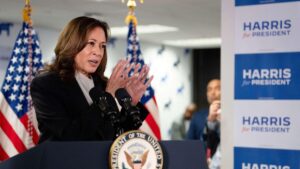I don’t envy Heather Hallett, the chair of the Covid-19 inquiry. Over the months, she has patiently listened to witness after witness, and reviewed thousands of statements, emails, policy notes, diaries and WhatsApp messages. It would be easy to get lost in the details, especially when many are focused on the political blame game and in-fighting in No 10. But we can’t lose sight of the main objectives of this process: accountability to the public for decisions taken during the pandemic, and learning lessons for the next one so the UK is better prepared.
Here’s my take on where we have got to in the second module. It is clear the UK could have handled the pandemic better. This is not compared with some idealised handling of 2020 with the benefit of hindsight, but with other similar nations. Our excess mortality is second highest in western Europe, and far higher than Norway, Finland and Denmark, as well as east Asian countries, Australia and New Zealand.
We also know what went wrong. The government was slow to acknowledge the threat of the pandemic to Britain, and didn’t act fast enough to contain Covid-19. This included no plan for containment, not having adequate PPE, lack of testing for months, no border restrictions to limit importation, and delays in pulling the emergency lever of lockdown.
Much of what we have heard was known at the time and covered extensively in articles and books. But it is useful to have confirmation and granular detail. We often knew what the best policy decision was, but seeing how the political processes failed should help us in the next emergency. The exact way things were dysfunctional has now been confirmed by those in government. Boris Johnson was indecisive, distracted by Brexit and changed his mind depending on whom he last spoke to.
Dominic Cummings suggested that the current prime minister, Rishi Sunak, termed “Dr Death” by one science adviser, thought the government should just let people die. Clearly he was considering his own ambition and core elite base when creating “eat out to help out”, an expensive scheme to push people into one of the riskiest settings for Covid-19 transmission with no consultation with scientific advisers or the health secretary.
When pushed about these views directly, Sunak couldn’t remember much. He gave a slippery performance, not wanting to commit to anything. And knowing he faces a general election soon, Sunak seemed in campaign mode, which meant he ended up saying nothing of substance.
Patrick Vallance, the chief scientific adviser at the time, and Cummings argued for prioritising human life, suppression and creating pathways for vaccines. Matt Hancock kept telling half-truths including that they had a plan when they didn’t; that they had PPE, when they didn’t; and that he wasn’t informed about asymptomatic transmission, when he was. At the time, Hancock seemed like one of the few in government taking the threat seriously. However, while this may have been partially true, the inquiry revealed he was also woefully ignorant of key facts and often simply trying to cover that.
It is also possible to see where some of the scientific decision-making could have been improved, even though it was made under very difficult conditions. Chris Whitty, the chief medical officer for England, started from the premise that there was nothing to be done to stop the disease spreading, and wanted to delay the initial lockdown due to his ideas around behavioural fatigue. A fair enough early point given flu plans – but they should have pivoted when other countries such as South Korea showed in January and February 2020 that suppression was possible without draconian measures or lockdown.
In this mishmash, what lessons are there about why mistakes during Covid-19 occurred? Perhaps the first is to elect leaders who run competent governments. We may not notice whether No 10 is functional in peacetime but weaknesses are on display in a crisis. Corruption hasn’t been touched on in the inquiry yet, but billions of pounds have been lost to Covid fraud.
No matter who is in power after this, they must ensure there is a plan for dealing with a pathogen, that there is flexibility to pivot based on the latest data and there is humility to learn from other countries who may be finding solutions. They must make sure there is an up-to-date stock of PPE to protect frontline staff. There is no point in delaying action until you are certain there is a problem: it is better to move early because, with exponential growth in a virus, days and even hours matter.
This is where testing would have changed the picture dramatically: functional testing early on would have meant that only those who were infectious could have isolated and reduced the spread. Without testing, everyone was treated as infectious and asked to stay at home. That is one key lesson: major loss of life and strict lockdown measures could have been avoided had the UK built up mass testing capacity at an early stage.
Johnson’s testimony revealed that when he met authors of the “Great Barrington declaration” (often referred to as the “let it rip” view) and Swedish adviser Anders Tegnell, the majority of them still preached caution and a high degree of state intervention. Those commentators selling populist snake-oil and promoting fantasy cures that doing nothing was an option were totally wrong. Even those scientists somewhat sceptical of lockdowns knew some government measures were necessary. The lesson? There are no easy answers, we must always grapple with the complexity and the hard routes ahead.
In addition, all the witnesses I’ve mentioned are … men. Johnson himself admitted that too many meetings were male-dominated. Women make up 51% of the population in Britain but feel invisible in the senior echelons of power. Diversity leads to better discussions, coverage of blind spots and more effective decision-making.
A final lesson is that leaders should have trust in science to find solutions: over the past century we have become better at defanging the diseases that hurt us. In July 2020, the UK government signed deals for 190m doses of promising vaccine candidates including from Pfizer/BioNTech and Oxford/AstraZeneca. Every infection delayed until a post-vaccine era was a potential life saved.
How many people would have lived if the government had worked to stop transmission until mass vaccination campaigns rolled out in early 2021? This is a question I haven’t yet heard put to witnesses. And it’s at the core of preparing for the next pandemic: how to draw up the development and manufacturing of scientific tools, while also buying time for their mass distribution, with minimal loss of life and livelihoods. Hopefully this will be a major focus when the inquiry resumes in January 2024.





